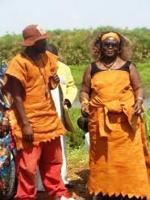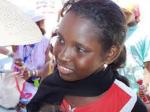Berea Theological College Kenya
Do you know why Berea Theological College Kenya is the most preferred college?
Do know that there is always a chance to get the best education in Kenya if you search for it. Are you looking for the best higher institution of learning in Kenya? Here are the details about Berea Theological College.
One of the best colleges you shouldn’t miss if you want quality education that matches the current market trends.
On this page we bring you details about Courses and Programmes offered at this college in Kenya , Admission and Requirements to study at Berea Theological College, Hostel and Accommodation facilities at this Berea Theological College Kenya and all you must know before you visit this college.
Other Best Colleges and Institutions in Kenya
East Africa School of Aviation | Africa College of Social Work | East African School of Journalism | East African School of Medical Studies | Friends University Kaimosi Kenya | East African School of Management | Eldoret Aviation Training Institute Kenya | Cambridge Secretarial College | African Advanced Level Telecommunication Institute Kenya | Vision Institute of Professionals |
SUMMARY OF THE COURSES
Berea Theological College began in 1985 after the creation of Eldoret Diocese out of the Diocese of Nakuru in 1983.
The training institute for the ordained ministry for the then Greater Nakuru Diocese was St. Paul’s Divinity School, Kapsabet started in 1961.
Berea college began as a diocesan college and soon it was recommended by the provincial Board of Theological Education (PBTE) to be one of the provincial colleges, where students were registered for a provincial certificate after a three-year theological training.
From 1991, the college adopted the Limuru Curriculum where students are prepared for a three-year Diploma course in Theological training.
1. Biblical courses:
Candidates take mandatory courses in Biblical studies in each of their three years at college.
The common aim for all these courses is to train students to interpret the Bible. Exegetical courses on the biblical text are designed to cover a wide range of Biblical books.
Students are encouraged to explore the theology of the text in order to relate biblical insights to contemporary social and cultural contexts.
Good biblical interpretation demands a full knowledge of the text, a deep awareness of contemporary society and a real desire to proclaim the Good News.
2. Theological Courses:
The courses are systematic and African theology for instance equips the student with a basic understanding of the major doctrines of the Christian faith, with reference to historical and modern developments.
ADMISSIONS.
Requirements and procedures.
To be admitted to the college, their own Diocesan Bishop’s Examining Chaplain panel must first of all accept potential candidates.
They make initial application through their local parishes where the parish priest makes recommendation and forwards the application of the candidate to the Bishop’s Examining Chaplain panel.
If selected the Examining authorities will forward the candidates names to the college and provide the necessary financial support during the three-year training.
The college admits students to a course leading to a Diploma in Theology recognised under the auspices of affiliation to St. Paul’s United Theological College-Limuru.
Candidates seeking admission must have either a division three O level Kenya Certificate student examination(KCSE) qualification or a C under the new 8-4-4 system.
Candidates without the qualifications are required to sit for the special Entrance Examination (SEE).
As the language of instruction in the college is English, the examination test is designed to assess the candidates’ ability in English composition, Comprehension, Grammar, Vocabulary, Expression and dictation.
At the end of a three-year course, the candidate will receive the Limuru Diploma Certificate in Theology and Academic Record.
THE COLLEGE CAMPUS LIFE.
Berea college is in a rural agricultural setting. It is about 7,000 feet, situated in the highlands of Kenya in the Rift Valley province.
The nearest main town is Nakuru, which is 26 kilometers. The famous home of flamingoes, lake Nakuru, which is a national park, is about 30 kilometers away from the college.
The climate is temperate and at times it is cool in the month of July.
There is an annual rainfall of upto 80-90 mm and the whole area is green and fertile. Being an agricultural environment, the college is surrounded by big coffee, Tea and Diary farms.
Recently some of these farms have started venturing on commercial flower farming. The college stands within Berea Church farm, with 250 acres.
There is a range of permanent buildings, which include a chapel, lecture rooms and administrative offices, a library, semi-permanent ladies hostels, a modern men’s hostel, and the multipurpose hall/dining kitchen with a seating capacity of 350 people.
Through God’s providence we were able to drill a borehole for the provision of sufficient clean water for the institution. The college is fully residential for students and staff.
The students are accommodated in individual study-bedrooms and eat in a communal dining hall.
There is a limited number of married students’ houses specially for Sudanese families. There is a nearby primary school for those with children of school age.
There are tutorial staff houses and each house has an adjacent vegetable Garden.
The college provides breakfast (7.00 am), lunch (1.00) and dinner (7.00) to all students. Corporate worship is a vital element to community life in college.
A part from daily morning service, there is the main celebration of the Eucharist on Wednesday at 7.30 am when the address is given by visiting preacher or tutorial members of staff.
Because of it’s ecumenical nature, the college has also been admitting students from other denominations who are member churches of national council of churches (NCCK).
So far we have trained candidates from the Holy Spirit church (i.e. African Instituted Churches).
The Methodist church of Kenya, and the Presbyterian church of east Africa (PCEA), and the Episcopal Church of Sudan.
The college has also established an exchange programme with Wycliffe Hall (Oxford), where they send students for a three-month block placement to have an African Church Missionary experience.
ENDOWMENT SCOLARSHIP FUND:
It has been the policy of the Provincial Board of Theological Education and Training (PBTE&T) whose chairman is the Rt. Rev. Dr. Gideon Githiga that theological institution like Berea should have an Endowment Scholarship Fund. The provincial College Council is to assist theological institutions like Berea to implement this policy.
The aim is to assist the very needy students who are unable to raise even their personal contributions.
BEREA GRADUATES:
Since the inception of Berea Theological College in 1985 we have trained so far 200 students from the Anglican Province of Kenya, Episcopal Church of Sudan and from other mainline churches lime Methodist, Presbyterian, and the Holy Spirit Church of Africa (African Instituted Church).
Our current capacity accommodation facilities can hold 150 persons. At the moment the college has a population of 92 students.
In our five-year development plan, we envisage to increase our current population form 90 to 350 students. Already we completed a multipurpose hall/dining kitchen which has the seating capacity of 350 people. Our next project is the ladies modern hostel (women center) with accommodation facilities for 60 occupants.
NON-RESIDENTIAL COURSES:
Along with a three-year residential course the college being an integrated resource center, also provide short courses (workshops and seminars which are geared to improve the local Christian communities’ capacities to exploit and manage the existing resources for sustainable agriculture.
The aim is to enhance the mission of the church in the context of evangelism and social responsibility.
The non-residential courses that are undertaken, mainly during holidays cover community health (e.g. HIV/AIDS pandemic), Social Development, Agriculture/livestock development and Environment conservation.
FUTURE DEVELOPMENT PLANS:
1. Computer Network
2. Construction of more staff houses
3. Construction of women center
4. Personnel training
5. Construction of modern library
6. Construction of more classrooms/workshop room
Contacts
Further information may be obtained from:-
The Principal
Berea Theological College
P.O. Box 1945
NAKURU - KENYA
E-mail: berea-tc@africaonline.co.ke
Recent Articles
-
Garam Masala Appetizers ,How to Make Garam Masala,Kenya Cuisines
Sep 21, 14 03:38 PM
Garam Masala Appetizers are originally Indian food but of recent, many Kenyans use it. Therefore, on this site, we will guide you on how to make it easily. -
The Details of the Baruuli-Banyara People and their Culture in Uganda
Sep 03, 14 12:32 AM
The Baruuli-Banyala are a people of Central Uganda who generally live near the Nile River-Lake Kyoga basin. -
Guide to Nubi People and their Culture in Kenya and Uganda
Sep 03, 14 12:24 AM
The Nubians consist of seven non-Arab Muslim tribes which originated in the Nubia region, an area between Aswan in southern








New! Comments
Have your say about what you just read! Leave me a comment in the box below.